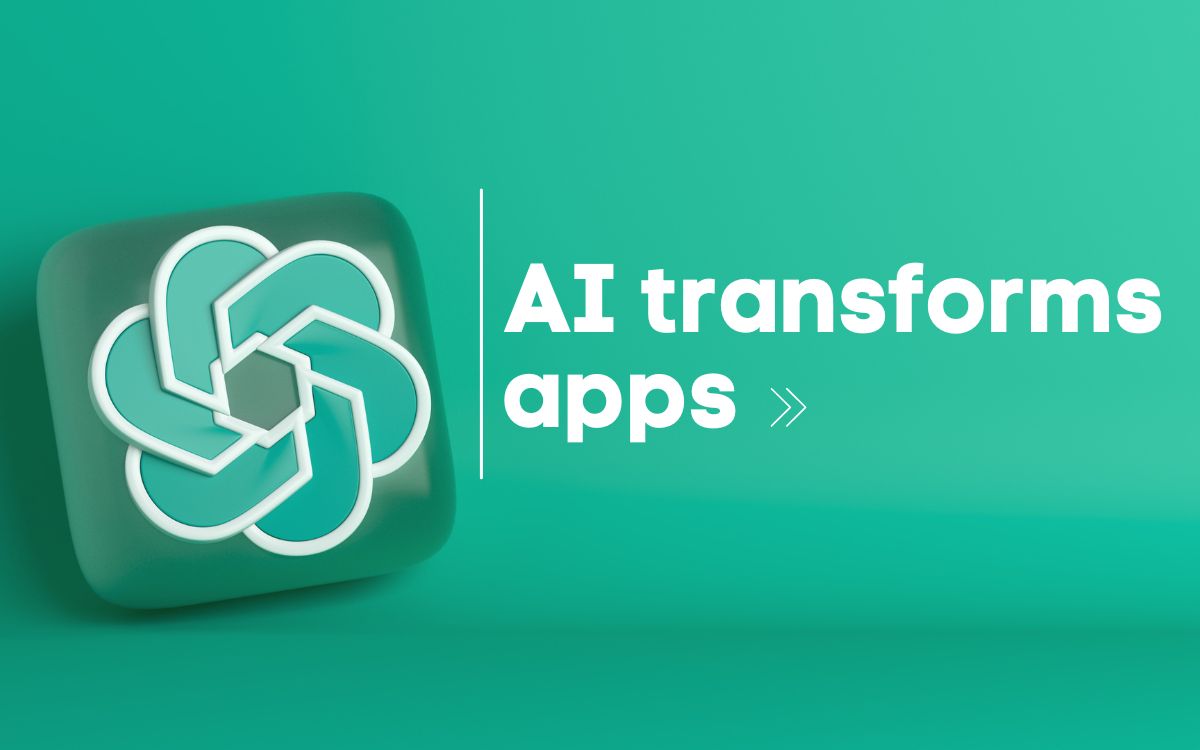The Rise of AI-Powered Apps
Artificial intelligence is transforming the app landscape in 2023. From personalized recommendations to conversational chatbots, AI is powering the next generation of intelligent apps across industries. As AI technology advances, we can expect even more intelligent functionality in the apps we use every day.
Personalized Recommendations
One of the most common uses of AI in apps is to provide personalized recommendations for content and products. Music and video streaming services like Spotify and Netflix use AI algorithms to study users’ listening and viewing habits. Based on this data, the apps can suggest new songs, artists, shows, and movies explicitly tailored to an individual user’s interests.
For example, the Spotify Discover Weekly playlist uses AI to identify songs and artists you may like based on your listening history. As you continue to use Spotify, it learns your preferences to improve recommendations over time. Netflix also fine-tunes its suggestions for shows and movies based on your viewing behavior and ratings.
Other apps like social platforms, news apps, and shopping apps now incorporate AI to curate personalized content recommendations to keep users engaged. For instance, TikTok’s AI closely analyzes the types of videos you enjoy watching to recommend accounts you may want to follow or videos you may like.
Conversational Chatbots
Another popular AI application in apps is conversational chatbots. Intelligent chatbots allow users to communicate with apps conversationally using natural language. Apps like Cleo and Flo have chatbots that feel like talking to a natural person. This enables an intuitive way to get information or accomplish tasks through an app.
For example, Cleo’s money management app uses AI to create a conversational chatbot that provides personalized financial insights and advice. You can have natural conversations about saving money or budgeting, just as you would with a financial advisor.
AI chatbots are also revolutionizing customer service through apps. Users can ask questions or get assistance simply by typing or talking to an app. The AI is capable of understanding requests and responding with helpful information. This convenient chatbot functionality eliminates frustrating menu trees or holds times.
Intelligent Assistance
Beyond recommendations and chatbots, AI is powering new intelligent assistance capabilities. Apps can now understand users’ context and behaviors to assist proactively.
For instance, Google’s health app uses AI to deliver proactive health insights and recommendations based on your activity patterns and health data. If your step count is low for the week, it may encourage you to take more walks. If you have an upcoming appointment, it will remind you of the right time.
Other apps like Otto, Clara, and Aura use AI to provide users with “digital companions” that learn your habits and preferences. They can then make personalized recommendations on productivity, health, entertainment, and more. It’s like having your own AI-powered personal assistant through an app.
Computer Vision
AI also enables apps to “see” and interpret the visual world. Computer vision powers features like face detection in social apps, object recognition in shopping apps, and more lifelike augmented reality experiences.
Snapchat leverages computer vision AI to apply contextually relevant lenses, masks, and effects that interact with a person’s face or environment. Apps like Ikea Place and Amazon View allow you to virtually place furniture or try on makeup using just your phone’s camera.
Computer vision even allows apps to describe images for visually impaired users through features like Apple’s VoiceOver and Google’s TalkBack. The possibilities for computer vision are expanding quickly thanks to AI.
Improved Predictive Analytics
Many productivity and finance apps harness AI’s data analysis capabilities to provide users with predictive insights. Apps like Microsoft’s MyAnalytics use AI to analyze data about a user’s time management and collaboration patterns to improve productivity.
Financial apps like Mint by Intuit incorporate AI to analyze income, spending history, and bills to alert users about upcoming payments, budget issues, or trends in spending. AI delivers insights users would be unlikely to surface on their own.
Risk analysis apps like Florence Healthcare’s clinical decision support app are also emerging. It uses AI to predict outcomes and support treatment plans for providers and patients with chronic diseases. The predictive power of AI is driving the evolution of data analysis apps across verticals.
Natural Language Processing
Natural language processing (NLP) underlies many of the previously mentioned AI capabilities like chatbots and voice assistance. Broadly, NLP refers to enabling computers to understand, interpret and manipulate human language.
For example, when you ask Siri or Alexa questions, NLP algorithms analyze your spoken words and extract their meaning to generate a relevant response. NLP also powers semantic search features in apps like TikTok, Pinterest, and Google that understand the concepts behind keywords to return more accurate results.
Translation apps like Google Translate use NLP to translate text or speech from one language to another directly. As NLP models grow more sophisticated, it opens doors for even easier human-computer interaction through language.
The Future of AI Apps
As AI technology grows more advanced in terms of computing power and large neural network models, we can expect apps to keep getting smarter. Assistants may soon feel like conversing with a friend while remaining highly personalized for each user.
Computer vision opens the door for augmented reality that seamlessly responds to real-world environments. Predictive analytics will uncover insights we didn’t realize an app could discover. And behind it all, NLP will enable talking to apps as the most natural interface.
While AI-fueled apps present opportunities to improve user experiences, risks around data privacy, algorithmic bias, and AI ethics remain. But as developers build AI responsibly, the future is bright for intelligent apps that make daily life easier, more efficient, and more informed. The age of AI-powered apps is just getting started.
